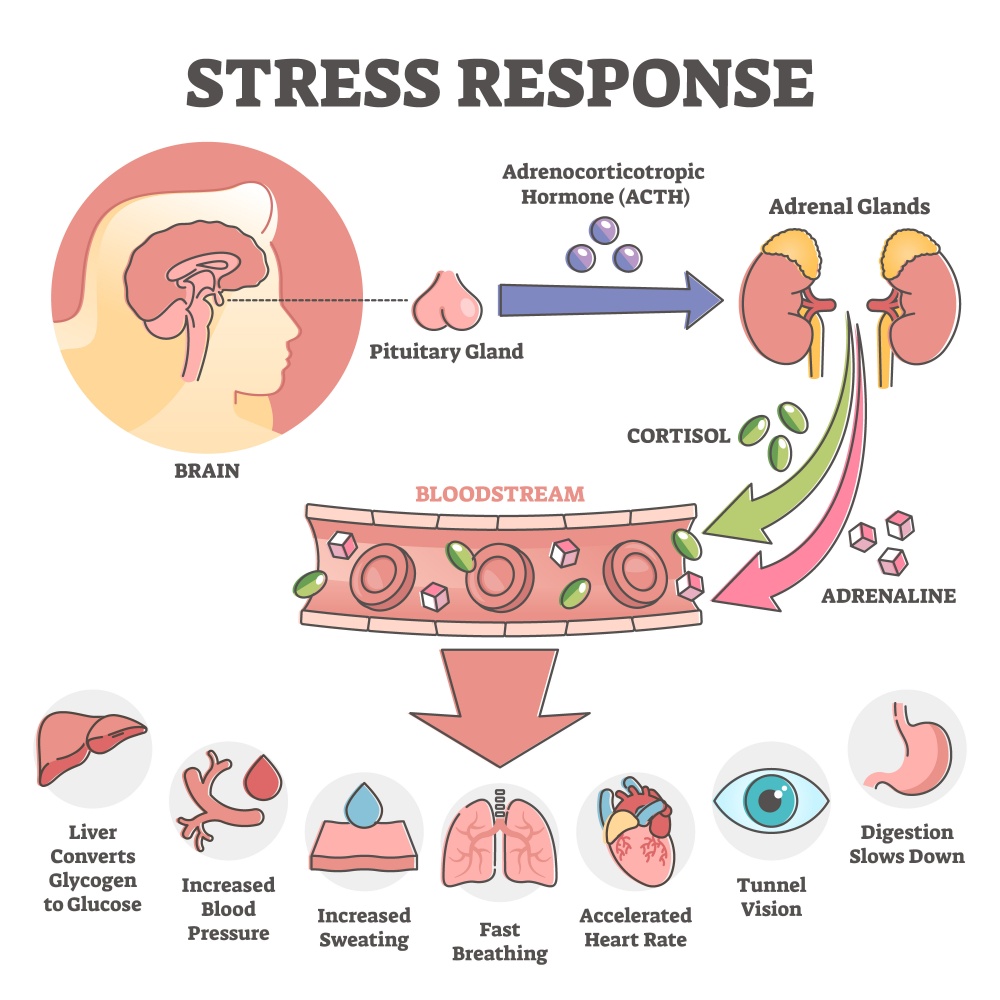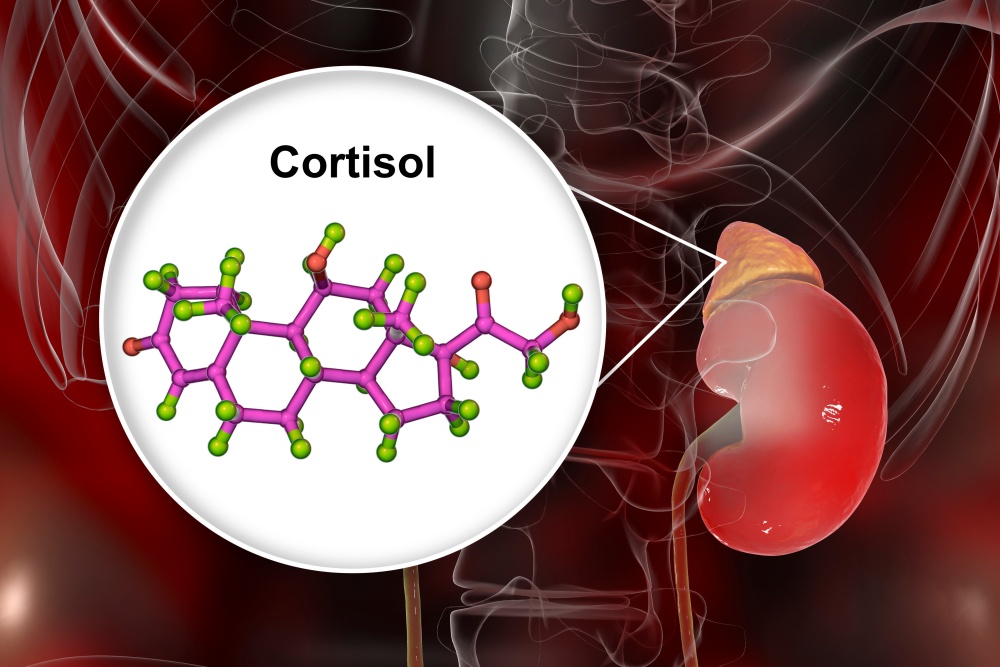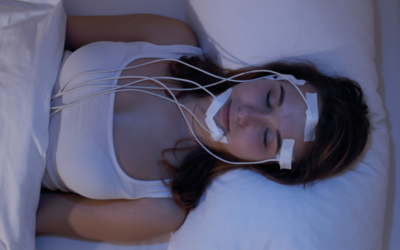The “Longevity” game is not about living long, but living “well”. And the hidden player calling the shots might be cortisol, aka the stress hormone. As stress permeates our lives, its effects on our overall health become increasingly apparent. In this article we will go on an enlightening journey through all the intricate connections between cortisol, stress, and well-being.
But let us start the journey with some staggering statistics…..
According to The American Institute of Stress, about 33% of people report extreme stress, with 77% claiming it affects their physical health and 73% experiencing stress to the level where it impacts their mental well-being.
While there are countless possible causes that determine our stress levels, Cortisol can’t be ruled out as the culprit behind it all.
How Cortisol and Stress Impact Overall Health
Cortisol is a hormone released from the adrenal glands. Hormones are signaling molecules that travel in the blood that allows different organ systems to communicate with one another. You can think of hormones as the “general” commanding his troops in different regions (organ systems). Cortisol, known as a glucocorticoid is widely considered the body’s stress hormone. Its receptors are present in almost all body tissues so this hormone can affect a wide range of bodily processes. Its effects include:
- Controls salt and water balance: It makes the kidneys retain salt in your body which is necessary for survival.
- Aids fetal development: Cortisol during pregnancy can influence rapidly developing fetal brain systems and contribute to neonatal well-being.
- Affects blood pressure: It is essential for maintaining blood pressure levels, but too much or too little of it can be problematic for your health.
- Regulates metabolism: It increases the availability of all fuel substrates and promotes gluconeogenesis and glycogenesis, aiding glucose metabolism and regulating immune pathways in the body.
- Maintains the sleep-wake cycle: It has a strong influence on your circadian rhythms and sleep patterns, reaching its peak moments before you open your eyes to stimulate wakefulness in the morning.
- Suppresses inflammation: It prevents tissue and nerve damage to naturally decrease inflammation and boost your immunity.
Most importantly, it is tasked with regulating your body’s stress response.
When you’re faced with a perceived threat, your hypothalamus initiates your body’s alarm system with a corticotropin-releasing hormone (CRH). It regulates the hypothalamic-pituitary-adrenal (HPA) axis and drives the body’s stress response. It also activates the release of the adrenocorticotropic hormone (ACTH) in the pituitary gland, controlling the production of cortisol and adrenaline in your adrenal glands.

Stress response anatomical scheme with body inner reaction outline concept
Unfortunately, sometimes, the signals result in extremely high or lower-than-normal levels of cortisol.
How Does Stress Manifest? Causes and Symptoms
Stress isn’t a permanent state. It comes and goes.
When it happens, you may experience physical symptoms of stress like difficulty breathing, panic attacks, fatigue, blurred eyesight, and/or psychological stress symptoms like feeling overwhelmed, poor sleep, and an elevated heart rate, to name a few.
Once a perceived threat disappears, your hormone levels will go back to their baseline. This takes you out of the fight-or-flight mode, allowing you to resume your day-to-day activities normally. But if you still feel revved up after the stressor has passed, your cortisol levels will remain elevated.
You Have High Cortisol Levels
If your body makes too much cortisol over an extended period of time, you may have a medical conditions called Cushing’s Syndrome (hypercortisolism). It can be brought on by:
- Taking high levels of glucocorticoids: Used to treat conditions like asthma, rheumatoid arthritis, and lupus, these cortisol-like medications can lead to Cushing’s Syndrome when consumed over a long time.
- Tumors: Pituitary, adrenal, and ectopic ACTH-producing tumors can cause excessive production of the adrenocorticotropic hormone (ACTH) and cortisol.
When you have abnormally high amounts of cortisol in your body, you may experience:
- Acne
- Excessive hair growth (hirsutism) in women
- Increased fat around the base of the neck and between your shoulder blades
- High blood sugar, which can quickly turn into Type 2 diabetes
- Hypertension
- Irregular periods
- Moon face
- Muscle weakness in the upper arms and thighs
- Slow wound healing
- Thin, frail skin that bruises easily
- Weak bones and fractures
- Weight gain, particularly in the face and abdomen, and thin arms and legs
- Wide purple stretch marks on your belly, breasts, underarms, and hips
You Have Low Cortisol Levels
If your body doesn’t make enough cortisol, might be due to adrenal insufficiency.
It can be brought on by:
- Addison’s disease (hypocortisolism): It is a rare, long-term endocrine disorder that occurs when the adrenal glands become damaged, causing limited cortisol and aldosterone production.
- Secondary adrenal insufficiency: It happens when your pituitary gland experiences decreased stimulation of the adrenocorticotropic hormone (ACTH), which leads to low cortisol
- Tertiary adrenal insufficiency: This typically happens when you stop corticosteroids after taking them for too long. However, it can also be brought on by problems with the HPA axis in the hypothalamus.
When you have lower-than-normal cortisol levels in your body, you may experience:
- Abdominal pain
- Changes in your skin (darkening of scars, etc.)
- Depression
- Diarrhea, nausea, and vomiting
- Fatigue
- Hypotension (low blood pressure)
- Irritability
- Loss of appetite
- Muscle weakness and pain
- Salt cravings
- Unintentional weight loss
Low levels of cortisol levels can be life-threatening. So, your doctor may recommend treatment with dexamethasone, hydrocortisone, or prednisone tablets to tackle the long-term effects of stress and replenish hormonal deficiency.
Now, so far, we have talked about medical conditions and treatments for a cortisol imbalance. However, most people fall into a category of pseudo- cushings syndrome which is when someone has the symptoms and causal factors that elevate cortisol levels (emotional or physical stress, alcohol withdrawal, major depressive disorder, uncontrolled diabetes) but do not have a medical condition impacting the HPA axis. With that said, in all cases, lifestyle interventions may help to regulate cortisol levels.
Guide To Reducing Cortisol Levels
There are many things you can do to hit the “just-right” spot on your cortisol levels and manage how stress physically and emotionally impacts your life.
Here are some tried-and-tested strategies:
Become Familiar With Your Stressors
Negative thinking can influence cortisol release and the hypothalamus-pituitary-adrenal axis — a system that controls your reaction to stress. As the relationship between stress and cortisol levels relies heavily on your thinking patterns, being aware of them can help you recognize the problem and eliminate it before it becomes worse.
Exercise, Exercise, Exercise
Physical activity can reduce cortisol levels. While exercising, cortisol levels increase, but the cortisol that is released during physical activity can suppress the subsequent cortisol response to a psychosocial stressor so that helps you manage your stress response better.
Research also suggests exercise increases peripheral endorphin concentrations, the feel-good hormones that can uplift your mood and alter pain perception.
Sleep Well
Insomnia and obstructive sleep apnea are more common among individuals with high levels of cortisol. So, getting more rest with proper sleep hygiene, nutritional support, and medical treatment can help regulate the close relationship between sleep, stress, and metabolism.
Laugh
Laughter, particularly mirthful laughter, can reduce your levels of cortisol and 4-dihydroxyphenylacetic acid (DOPAC), which can help reverse neuroendocrine and classical stress hormone responses. Indulging in things you enjoy can also encourage positive feelings, make you feel refreshed, and help you cope with stress.
Journaling
Journaling gives you a healthy way to release your negative thoughts and feelings, which can help you identify what’s sending your cortisol levels into a frenzy. It can also increase your positivity and provide you with some much-needed stress relief.
Relaxation Exercises
Cognitive and somatic relaxation exercises can decrease salivary cortisol levels.
Here are some techniques that can offer optimal stress reduction over time when practiced consistently:
- Box breathing: This mind-body practice increases parasympathetic nervous system activity, which improves sustained attention and cortisol levels.
- Guided imagery: It can reduce the stress biomarker salivary cortisol and acute stress.
- Progressive muscle relaxation: It can initiate a decrease in the stress-associated hormone
Eat a Healthy Diet
A carb-heavy diet can reduce cortisol, but make sure it is in accordance with dietary guidelines or you may be at risk for obesity-related diseases.
Your Key Takeaway
Stress-reduction strategies work like a charm but they take time to show results.
Seeing little to no changes in your life even after lifestyle modifications can be discouraging, so many people find themselves gravitating towards tobacco use or alcohol consumption to feel good. However, these can pose significant health hazards.
For a health-first approach, seek professional counseling instead.
Your doctor will help you identify triggers, work through your issues, and develop coping strategies to better manage stress and improve your quality of life.
Articles You Might Be Interested In:
Sarcopenia: Impact on health and longevity
Implications Of Sarcopenia On Health And Longevity It is easy to assume that losing some strength is a “normal part of aging”. In fact, maybe you have even heard this from your healthcare providers. The truth is that getting “weaker” as we age is not “normal” and...
Can Flow State Improve Healthspan?
Have you ever been so engrossed in a task that time seemed to stand still? Or maybe you've experienced a surge of creativity and productivity that left you feeling invincible. If so, you may have entered the elusive state of flow. This mental state, also known as...
Is Reverse Osmosis Water Filtration Better For You?
Water is essential for life, but not all water is created equal. Tap water can contain harmful contaminants and chemicals that can have adverse effects on our health. This is where reverse osmosis water purification comes in. Reverse osmosis (RO) is a highly effective...
Health Benefits of Daily Sunlight
Health Benefits of Daily Sunlight There are two sides to every coin—and two stories to tell about sunlight. Skincare enthusiasts and specialists, it seems, have taken a definitive stand against the sun, branding it as a villain that causes premature aging and leads to...
Can a sleep study improve health?
Sleep is an essential part of our daily routine. Quality sleep might also be a critical factor in maintaining good health. However, many people suffer from sleep disorders that can lead to serious health problems. A sleep study is a diagnostic test that can help...
Brain Derived Neurotrophic Factor (BDNF) and Brain Health
Brain-derived neurotrophic factor (BDNF) is a protein that aids in cell function and promotes the growth of new nerve cells (neurogenesis). Studies have shown that BDNF plays a critical role in neuroplasticity (the brains ability to build new nerve connections) and...
Neuroinflammation: Implications in Brain Health and Disease
Neuroinflammation is a broad term that is characterized by an immune response in the central nervous system (CNS) - the brain and spinal cord. This abnormal immune response is initiated by cues including infection, bacteria, brain injury, toxins and autoimmunity. ...
How Old Is Too Old?
You are never too old to set another goal or to dream a new dream. -C.S. Lewis How old is “too old”? I am often curious about this question. Especially when I hear statements like “I am too old to change”, “this is the way I have always been”, “maybe when I was...
What is your Ikigai?
Not everyone wants to live a long life. But what about a happy and healthy life? If this is you, sit down and pull up a chair. Ikigai might be the answer.
Implications of Sleep and Neurological Rehabilitation
https://youtu.be/FWIX8Ht6bm4 Good quality sleep can dramatically improve neurologic rehabilitation outcomes. Getting adequate sleep might also decrease the rate of disease progression in some neurodegenerative diseases (multiple sclerosis, Parkinson's disease, or...











